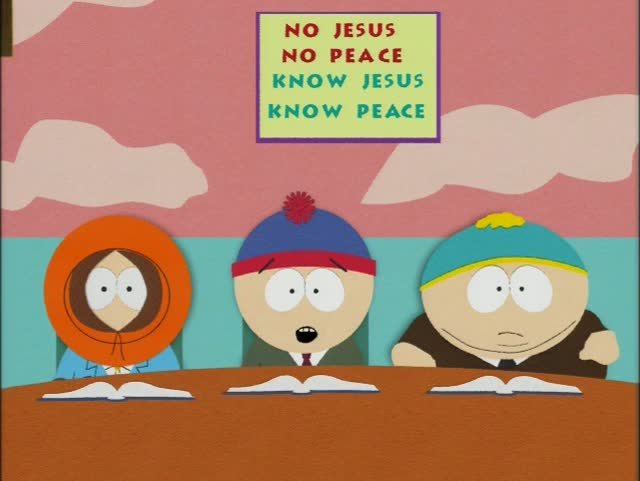
Evangelicals believe the Bible is the inspired, inerrant, infallible Word of God. It’s not A BOOK, it is THE BOOK, a book above all others. All other books, except the Bible, are the words of fallible men. The Bible, on the other hand, is the WORD OF GOD. Written by men as they were moved (led/directed) by the Holy Ghost, (2 Peter 1:21) every word of the Bible is true. Evangelicals confidently (and arrogantly) believe that when they quote the Bible they are quoting the very words of God. (2 Timothy 3:16) Thus saith the Lord, right? I have engaged countless Evangelicals on this blog over the past ten years. More than a few of them have told me, “Bruce, your argument is with God, not me! I just told you what God said!” In the minds of Evangelicals, quoting the Bible to me (or readers of this blog) is akin to God speaking directly to me. God said it, end of discussion.
Evangelicals believe that the Bible gives them everything they need pertaining to life and godliness. (2 Peter 1:3) The Bible, then, is a roadmap, a divine blueprint for life. The truths of the Bible are unchanging and eternal, relevant and true for every generation. Just as Jesus is the same yesterday, today, and forever, so is the Bible. (Hebrews 13:8) Thinking this way, of course, forces Evangelicals to defend all sorts of antiquated, immoral beliefs. If God said it, that settles it, right? And therein is the problem. If the Bible is “God speaking” then we humans better pay attention. However, if the Bible is the words of men, then we are free to accept or reject what is written. If the Bible is just a bunch of contradictory books written by mostly unknown ancient writers, it’s just bad literature. It’s time for a rewrite or perhaps a new Bible altogether. I would be glad to help write a new one. God saith to Evangelicals, “don’t be judgmental pricks and assholes. 🙂
Of course, Evangelicals are never going to admit that the Bible is anything but the timeless, precious words of God. Since that’s the case, I try to engage Evangelicals within the pages of the Bible; to challenge their interpretations; to call into question their application of the Bible.
Take the subject “peace.” The Bible says:
These things I have spoken unto you, that in me ye might have peace. In the world ye shall have tribulation: but be of good cheer; I have overcome the world. (John 16:33)
Let not your heart be troubled: ye believe in God, believe also in me. . . Peace I leave with you, my peace I give unto you: not as the world giveth, give I unto you. Let not your heart be troubled, neither let it be afraid. (John 14:1,27)
Be careful for nothing; but in every thing by prayer and supplication with thanksgiving let your requests be made known unto God. And the peace of God, which passeth all understanding, shall keep your hearts and minds through Christ Jesus. (Philippians 4:6,7)
Now the Lord of peace himself give you peace always by all means. The Lord be with you all. (2 Thessalonians 3:16)
And let the peace of God rule in your hearts, to the which also ye are called in one body; and be ye thankful. (Colossians 3:15)
Follow peace with all men, and holiness, without which no man shall see the Lord: (Hebrews 12:14)
Great peace have they which love thy law: and nothing shall offend them. (Psalm 119:165)
These verses, and others, explicitly teach that Evangelicals should be the most peaceful people on the planet. Psalm 34:14 says the followers of Jesus should “seek peace and pursue it.” If Jesus is the “peace” that passes all understanding; if the Holy Ghost lives inside of every Evangelical, giving them peace and comfort no matter what comes their way, then why are so many Evangelicals anything but calm, cool, and collected? Eighty-one percent of white voting Evangelicals voted for Donald Trump. Are they a peaceful lot? Picture January 6th, if you need your memory refreshed. Ponder, for a moment, the lives of Evangelical culture warriors, and how they rage against the “world.” Do they strike you as people who have “peace that passes all understanding?” Everywhere I look, I see hateful, angry Evangelicals. Evidently, they don’t love God’s law. If Evangelicals loved the law of God, Psalm 119:165 says that they would have peace and NOTHING would offend them. Tell me, do Evangelicals seem “offended” by virtually e-v-e-r-y-t-h-i-n-g these days? What happened to the peace of God which is to rule and reign in their hearts?
Nineteen years ago, Polly’s sister was tragically killed in a motorcycle accident. (Please see If One Soul Gets Saved It’s Worth It All.) Our family gathered at the hospital, hoping to find out about her husband, who survived the crash. I couldn’t help but notice the family patriarch (please see The Family Patriarch is Dead: My Life With James Dennis) pacing back and forth, praying and quoting Bible verses. In any other setting, such behavior might land you in the psych ward. This man was a well-known Independent Fundamentalist Baptist (IFB) preacher, with, at the time, 40 years in the ministry. I was a Christian, at the time — having just left the ministry — and I remember thinking how odd his behavior seemed. What happened to God’s peace? What happened to nothing happening apart from God’s perfect, sovereign will? Shouldn’t the family patriarch, along with every Christian in that room, accept that Kathy’s death was all part of God’s wonderful plan for her life? After all, as a child, she asked Jesus to save her. She was now in Heaven, praising Jesus for his love, mercy, and grace. Shouldn’t this “fact” have given all of us “peace”?
I was an Evangelical pastor for twenty-five years. I watched scores of Christians suffer and die. I watched others bear the death of loved ones, loss of livelihood, divorce, and numerous other tragedies. I can’t remember anyone who had “peace” like the Bible talks about. Instead, I saw a range of emotions, normal human expressions of pain, loss, and grief. Were these people bad Christians? Of course not. They were human. And if there’s one thing I know for certain, it is this: when life turns to shit and the walls crumble and collapse, atheists and Evangelicals alike respond the same way. The difference being, of course, that Evangelicals, thanks to their commitment to the Bible, are expected to rise above the struggles of life and have “peace.” That they don’t is not a reflection on them as much as it is on their beliefs.
Bruce, what’s your point? Damn, do I always have to have a point? 🙂 Yes, I have point. Evangelicals often come off as people who think they are above the fray; people who, thanks to Jesus, are immune to the struggles faced by the unwashed, uncircumcised Philistines of the world. When “life” dumps a load of shit on their doorstep, Evangelicals are expected to smile and claim VICTORY IN J-E-S-U-S! However, that’s not what we see. Instead, we observe people who are just like the rest of us. And THAT’S my point. The Bible says in Galatians 5:22,23, that the fruit (evidence) of the Holy Spirit (who purportedly lives inside every Christian) is (present tense) love, joy, peace, longsuffering, gentleness, goodness, faith, meekness, and temperance. Based on the inviolate Word of God just quoted, how many Christians do you know who have the fruit of the Spirit? That’s a rhetorical question. The answer is NONE. Certainly, the fruit of the Spirit is desirable for believers and unbelievers alike. However, all of us are feeble, frail human beings. Whether we are atheist, agnostic, pagan, Satanist, Buddhist, Catholic, Baptist, Presbyterian, Evangelical, or liberal Christian, it matters not. All of us are one and the same. Thoughtful humanists understand this. It is our shared humanity that binds us together. While “peace” is a desirable behavior, at least for me anyway, none of us should feel we have failed when life overwhelms us like a tsunami and we lose our shit.
Make sense? I hope so. Please share your sage advice and thoughts in the comment section.
Bruce Gerencser, 68, lives in rural Northwest Ohio with his wife of 47 years. He and his wife have six grown children and sixteen grandchildren. Bruce pastored Evangelical churches for twenty-five years in Ohio, Texas, and Michigan. Bruce left the ministry in 2005, and in 2008 he left Christianity. Bruce is now a humanist and an atheist.
Your comments are welcome and appreciated. All first-time comments are moderated. Please read the commenting rules before commenting.
You can email Bruce via the Contact Form.

